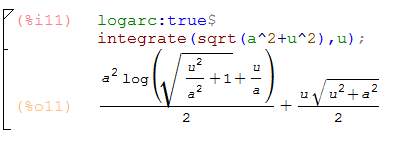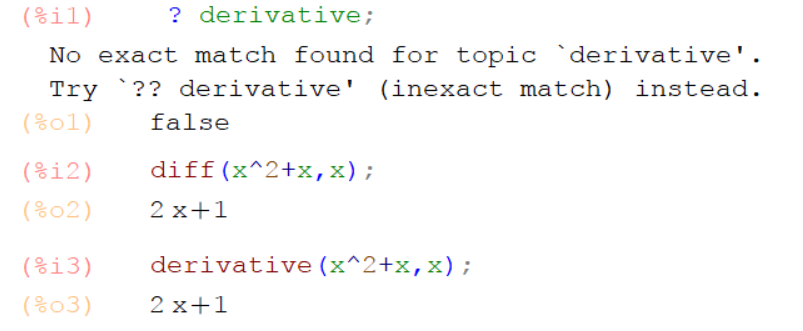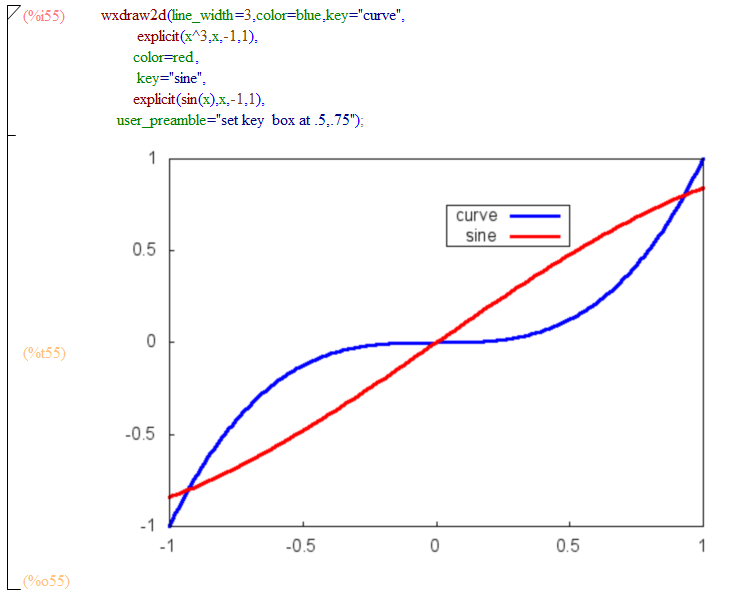logarc
In the back of my calculus book there is a table of famous integrals. Here’s integral number 21 in that table:

From Maxima integrate(), I get

What’s going on?
Both forms give a workable antiderivative for the original integrand:

Furthermore, we believe that both forms are correct because of this helpful identity for hyperbolic sine:

Turns out (thanks to a Barton Willis for pointing me in the right direction) there’s a variable logarc that we can set to make Maxima return the logarithmic form instead of hyperbolic sine:

I haven’t yet encountered cases where this would be a bad idea in general, but I’ll update this if I do.
logabs
In the first week of my differential equations course, we study methods of direct integration and separation of variables. I like to emphasize that the absolute values can lend an extra degree of generality to solutions with antiderivatives of the form

As an example, for the initial value problem
 ,
,  ,
,
it is convenient for treating all possible initial conditions ( ) in one step to use the antiderivative
) in one step to use the antiderivative

However, Maxima omits the absolute values.

For this case, we could consider only the needed interval  , but still…
, but still…
Turns out we can set the Maxima variable logabs to make integrate() include absolute values in cases like this:

But then later in the course, I saw that logabs also impacts the Ordinary Differential Equation solver ode2(). I encountered an example for which Maxima, in particular solve() applied to expressions involving absolute value, didn’t do what I wanted with logabs:true
For the logistic equation
 ,
, 
we expect that by separating variables we can obtain the solution

Here’s what happens when we use ode2() with and without logabs:true:














